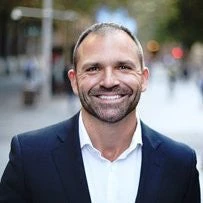Cover Photo: © Getty Images, Inc.
Book Title: In From the Shadow : Integrating Europe’s Informal Labor
by Truman Packard, Johannes Koettl, Claudio Montenegro
Few phenomena that occupy the time of governments and economists are as ambiguously defined and difficult to measure as the “shadow" or "informal" economy. Those terms immediately make some people think of the guys who built an extension for their house and insisted on being paid in cash. Others remember the taxi driver who took them home after a late night out, and either didn’t have a meter or didn’t turn it on. Those who have been in very poor countries might recall bustling markets where you can haggle for anything from a handful of fresh chilies to a pair of sandals or even livestock. All of these are likely to be part of the unregulated and untaxed transactions that make up a country's informal economy.
But the key to measuring the informal economy and its importance lies in a critical distinction between "legal" and "criminal." The informal economy is the sum of production of goods and services that are, in essence, legal under prevailing laws - like construction, driving cabs, and selling things - but are partially or totally concealed to avoid payment of taxes and social security contributions, or to escape regulation.
Why should anyone care? For the person or small business that gets away without paying taxes or avoiding troublesome and possibly costly regulation, the pay-off from working informally is immediate and obvious. But in addition to being selfish (something few economists would quibble with), it is short-sighted.
A large, informal economy creates problems on three levels.
First, at the household level, people working informally cannot properly manage income risks. Accessing insurance that protects them from shocks to their income during sickness, unemployment, disability, and old age becomes tough. Having access to such insurance instruments is vital to overcome income uncertainty. Even if people were able to manage without help or had access to private insurance, they could find it difficult to accurately assess risks, like health care, and save for needs far in the future. There is also no easy recourse to property rights or legal protection when things go wrong in the informal sector.
Second, with businesses, a large informal economy means bigger firms are often over-taxed to make up for revenue lost to the government from small firms that can more easily evade taxes. This can discourage businesses from investing and hinder economic growth. Further, firms that operate within the rules face unfair competition from those that don’t. Firms that operate informally can be constrained to a small size to escape detection by tax authorities and may have to forgo a more efficient scale of production. And like households where the breadwinner works informally, these firms also have limited access to credit and recourse to legal protection when they need it.
Third is the problem of society. A large shadow economy imposes heavy costs to society -- costs that deteriorate public services and goods. Someone who gets away without paying taxes today might regret it tomorrow if streets don't get cleaned, their kid's school can't afford new text books, or the local health center is forced to close due to lack of funds.
But often people don't directly suffer the consequences of their actions, and the cost of their selfishness and shortsightedness is borne by others. This is what economists call a “free rider problem.” In extreme cases, it can corrode social structures to such an extent that it contributes to huge public debts and even state failure. Just look at what's happening across Europe's southern fringe.
As Eastern Europe struggles to manage the costs of the global financial crisis and rapid aging, the circumstances that lead people to work and trade informally in the shadow economy have become very important. Our book is about these men and women, and the policies governments might consider in bringing them in from the shadow.



Join the Conversation